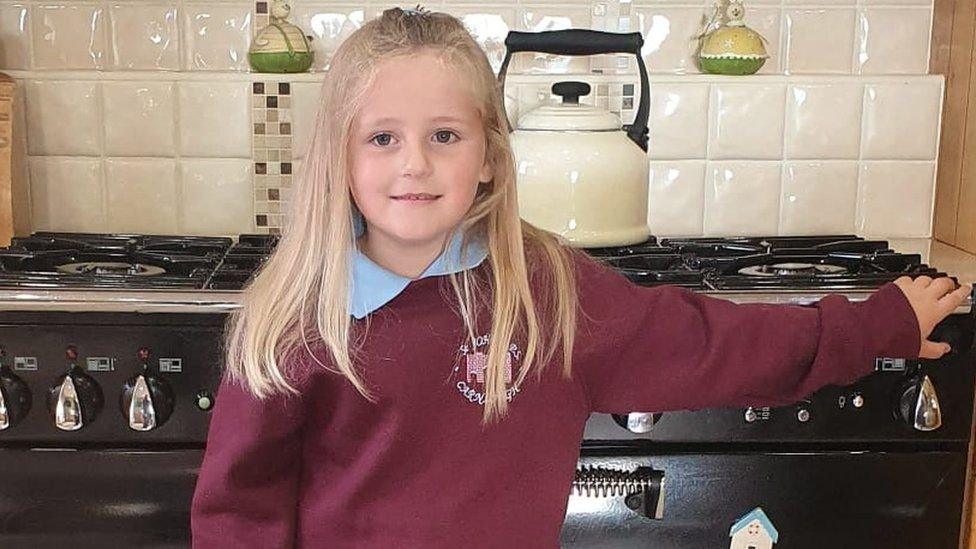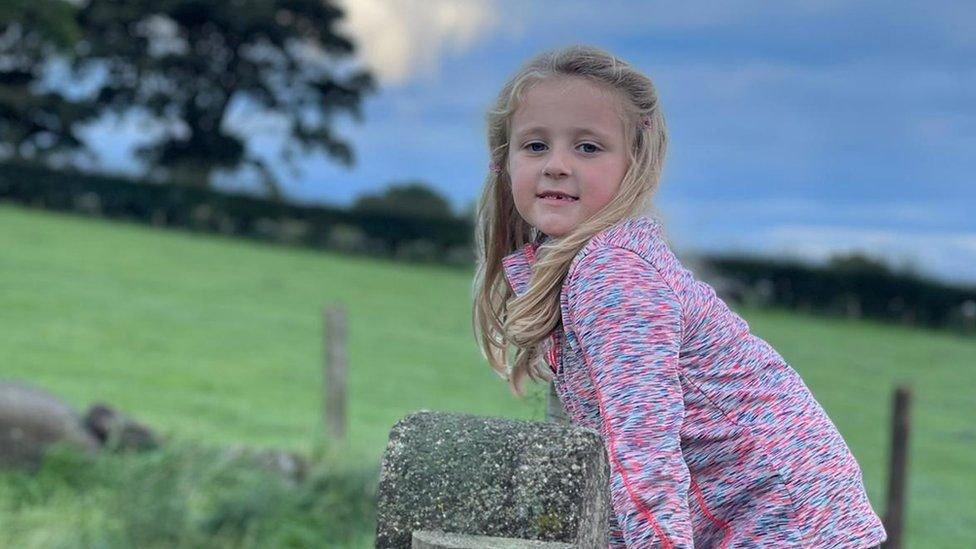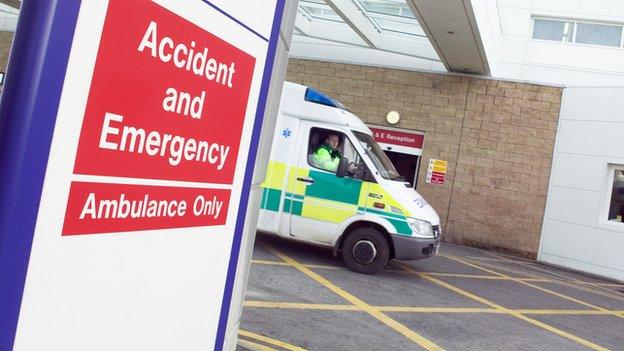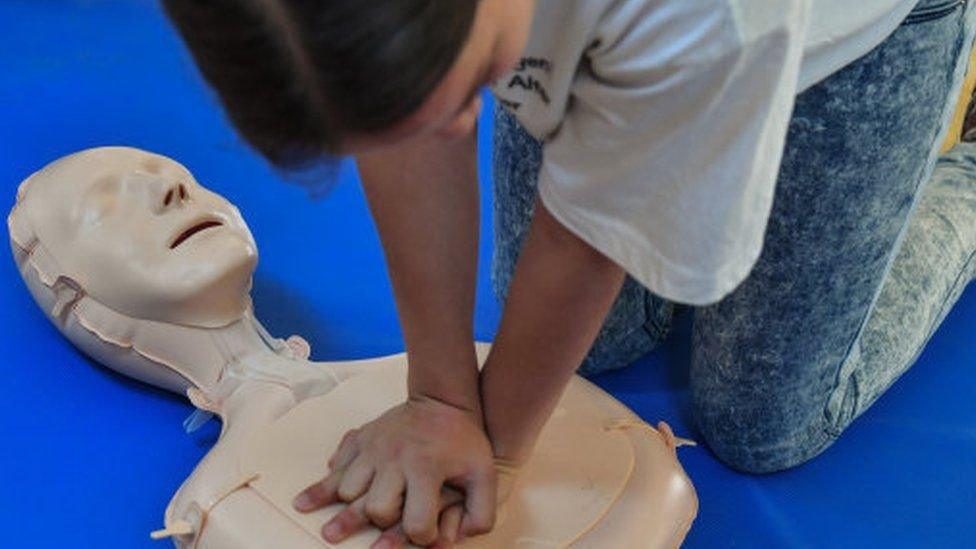Fire crews to help in emergencies alongside NI Ambulance Service
- Published

Five-year-old Maggie Black from Glenarm died in December after she had been feeling unwell for several days
Fire crews will be dispatched to support the NI Ambulance Service in Carnlough, County Antrim, when someone has had a cardiac arrest in rural areas, the health minister has said.
The initiative will be part of a phased roll-out of firefighters trained to help in emergencies.
It follows calls from the family of five-year-old Maggie Black from Glenarm who died in December.
He family asked for fire crews to help paramedics in rural areas.
Maggie had been feeling unwell for several days.
Her family told BBC News NI an ambulance took more than an hour to arrive and that they called upon a relative who is a local firefighter to help.
The new scheme means local firefighters may arrive ahead of paramedics to administer potentially life-saving treatment.
This could be CPR and defibrillation.
The Department of Health said that Carnlough Fire Station will be the first to take part in the roll out and further stations will be announced in due course.
'Put our pain to purpose'
Maggie's mum, Sheenagh Black, said: ""This announcement today, having Maggie's Call accepted and having agreed plans in place for implementation in Maggie's memory means so much to us all as a family and community.
"We have successfully put our pain to purpose and made a change that can only save lives and help support the ambulance service - two amazing services working together."
Previously the Black family said available fire crews should be despatched to all medical emergencies in rural areas, not just cardiac calls.

Maggie's family would like to see the dispatch of the fire service in similar situations to the one they faced
Mr Swann said "today is the first step".
"Any potential for firefighters to utilise existing capacity and the skills they hold to secure better health outcomes is worthy of consideration," he said.
Chief Fire and Rescue Officer, Peter O'Reilly, said firefighters would be trained to deliver "the best possible response in what are the worst possible scenarios".
Allow X content?
This article contains content provided by X. We ask for your permission before anything is loaded, as they may be using cookies and other technologies. You may want to read X’s cookie policy, external and privacy policy, external before accepting. To view this content choose ‘accept and continue’.
"We know that by ensuring the fastest response possible we can give patients the best possible chance of survival," he said.
NI Ambulance Service Chief Executive, Michael Bloomfield said he has "no doubt" that this collaboration "had the potential to save lives and will bring great benefits to those rural communities where ambulance response times remain challenge".
- Published11 January 2022

- Published5 August 2021

- Published20 September 2021
